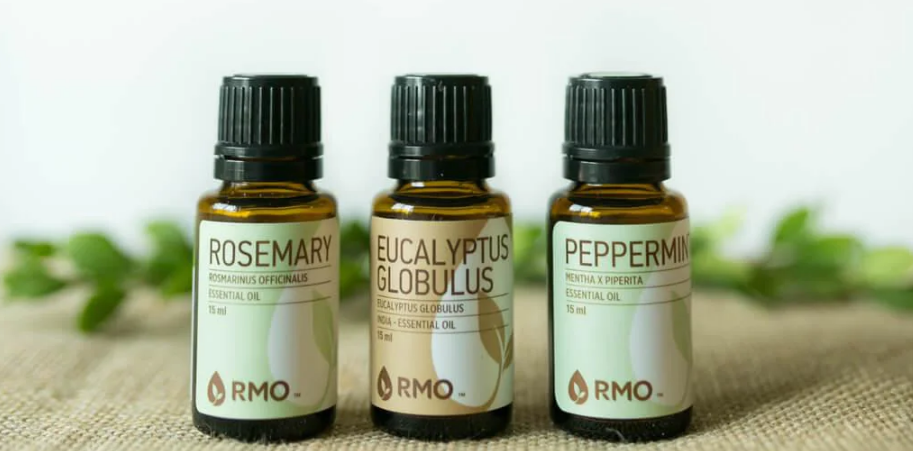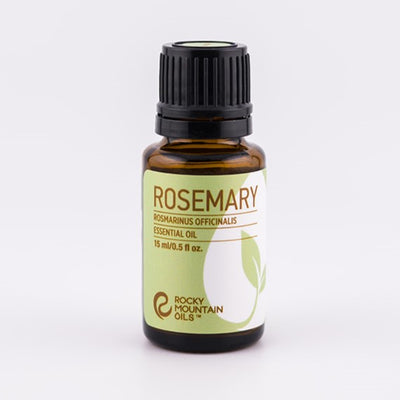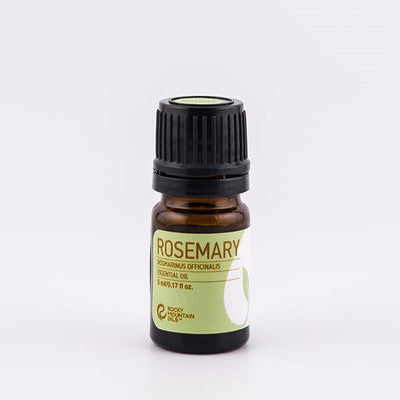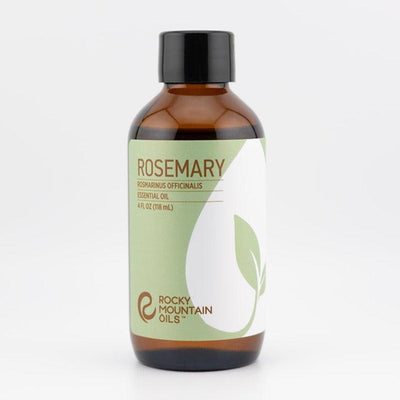Rosemary Essential Oil for Hair: Unlock 7 Transformative Tips
Introduction to Rosemary Oil
Background and Benefits
Rosemary oil is not just a kitchen staple; it's a powerhouse in hair care. This aromatic oil has been cherished for centuries, not only for its scent but also for its vast array of benefits, particularly for hair health. Rich in antioxidants, rosemary oil stimulates blood circulation to the scalp, which promotes hair growth and prevents hair thinning. It's a natural solution for those looking to enhance their hair's strength, shine, and overall health.
Historical Uses
The use of rosemary oil dates back to ancient times, when it was revered for its medicinal properties. Historically, it was utilized to improve memory, relieve muscle pain, and stimulate hair growth. Its enduring legacy in hair care is a testament to its effectiveness and natural healing power.

Choosing the Right Rosemary Oil
Tips for selecting high-quality rosemary oil
When selecting high-quality rosemary oil, it's essential to look for several key factors. First, ensure that the oil is labeled as 100% pure, indicating that it has not been diluted with any other substances. Additionally, opt for organic oil to avoid any potential exposure to pesticides or other harmful chemicals. Finally, choose oil that is labeled as therapeutic grade, indicating that it has been tested and proven to provide therapeutic benefits.
Potential sources for purchasing rosemary oil
When purchasing rosemary oil, it's essential to choose a reputable seller who provides detailed information about the product. This includes its origin, extraction method, and purity. Health food stores, online retailers, and specialty shops that specialize in essential oils are good places to find high-quality rosemary oil. Check here
How to Use Rosemary Oil to Strengthen and Grow Hair
Application Methods
Applying rosemary oil directly to the scalp can help stimulate hair growth by increasing blood circulation to the hair follicles. Massaging a few drops of rosemary oil into the scalp can also help nourish the hair follicles and promote stronger, healthier hair. Additionally, mixing rosemary oil with your regular shampoo can provide added benefits by infusing your hair with its stimulating and nourishing properties with each wash.
Combining with Other Natural Ingredients
Combining rosemary oil with other natural ingredients like coconut oil or aloe vera can provide an extra boost to your hair care routine. Coconut oil is known for its deep conditioning properties, helping to nourish and strengthen hair strands. Aloe vera, on the other hand, is highly moisturizing and can help soothe the scalp while promoting healthy hair growth. Mixing these ingredients with rosemary oil can create a potent hair treatment that leaves your hair softer, shinier, and more resilient.
Choosing the Right Rosemary Oil
Types of Rosemary Oil
Cineole-based rosemary oil contains higher levels of cineole, which has been shown to promote hair growth by improving circulation to the scalp and stimulating hair follicles. This type of rosemary oil is often recommended for individuals looking to address issues such as thinning hair or hair loss. On the other hand, camphor-based rosemary oil is prized for its soothing properties. It is commonly used to alleviate scalp irritation and inflammation, making it an excellent choice for those with sensitive or itchy scalps.
What to Look for in Quality Rosemary Oil
When selecting rosemary oil for hair care, purity is paramount. Look for a product labeled as 100% pure, indicating that it contains no additives or fillers. Additionally, opting for organic and therapeutic-grade oil ensures that you're getting a high-quality product that's free from pesticides and chemicals, making it safe and effective for hair health.
Preparation Before Application
Hair and Scalp Analysis
Understanding your hair and scalp type is crucial because different hair types require different levels of hydration and care. For example, individuals with dry scalps may benefit from rosemary oil's moisturizing properties, while those with oily scalps may find it too heavy and exacerbate their condition. Additionally, individuals with sensitive scalps should proceed with caution and may want to perform a patch test before using rosemary oil extensively.
Pre-application Steps
Before applying rosemary oil to your hair and scalp, it's essential to cleanse them thoroughly to remove any buildup or residue that may hinder the oil's absorption. This ensures that the rosemary oil can penetrate effectively and deliver its beneficial properties to your hair and scalp. Additionally, performing a patch test on a small area of skin is recommended to check for any allergic reactions or sensitivities before applying the oil more widely.
Step-by-Step Guide
Mixing Instructions
To create a hair-loving blend, start by mixing a few drops of rosemary oil with a carrier oil such as coconut oil, almond oil, or jojoba oil. Rosemary oil is known for its ability to stimulate hair growth, improve scalp health, and prevent premature graying. By diluting it with a carrier oil, you can safely apply it directly to your scalp, allowing its beneficial properties to nourish your hair follicles and promote healthy hair growth.
Application Technique
Applying the oil mixture to your scalp with gentle, circular motions helps ensure that the oil is evenly distributed throughout your scalp. This technique also stimulates blood flow to the scalp, which can enhance the effectiveness of the oil by promoting better absorption of its nutrients. Additionally, massaging the scalp in this manner can provide a relaxing experience and help alleviate tension or stress.

Safety and Precautions
Skin Sensitivity Tests
A patch test involves applying a small amount of rosemary oil to a small area of your skin, typically on your inner arm or wrist. Leave the oil on for at least 24 hours and observe for any signs of irritation or allergic reaction, such as redness, itching, or swelling. If no adverse reactions occur, it's likely safe to use rosemary oil more extensively, but always dilute it properly before applying it to your skin.
Potential Side Effects
Rosemary oil is generally considered safe for topical use, but some individuals may experience allergic reactions such as skin redness, itching, or swelling. Additionally, direct application of undiluted rosemary oil to the skin can sometimes irritate, especially for those with sensitive skin. It's essential to conduct a patch test before using rosemary oil extensively and to discontinue use if any adverse reactions occur.
Optimizing Results
Best Practices
Consistency is essential when using rosemary oil for hair care, as it may take some time to see noticeable results. By incorporating it into your regular hair care routine, you can promote healthier hair growth and improve scalp health over time. Pairing the use of rosemary oil with a balanced diet and proper hair care practices can enhance its effectiveness and help you achieve the best outcome for your hair.
Frequency of Use
The frequency of applying rosemary oil depends on various factors such as hair type, scalp condition, and desired results. While the general recommendation is 2-3 times a week, some individuals may find that they benefit from more frequent use, while others may need less. It's essential to observe how your hair and scalp respond to the oil and adjust the frequency accordingly to achieve the best results.
Complementary Hair Care Tips
Diet and Nutrition
A nutrient-rich diet plays a crucial role in promoting healthy hair growth by providing essential vitamins and minerals that support the hair follicles' health and function. Foods high in vitamins like A, C, and E, as well as minerals like iron and zinc, can contribute to more robust, shinier hair. When combined with the topical application of rosemary oil, which has been traditionally used to improve scalp health and stimulate hair growth, a balanced diet can maximize the benefits for overall hair health and appearance.
Additional Hair Care Products
Rosemary oil is known for its ability to promote hair growth and improve scalp health. By incorporating sulfate-free shampoos and conditioners infused with rosemary oil, you can effectively cleanse your hair without stripping it of its natural oils, thus maintaining its health and vitality. These natural hair care products are gentle on the scalp and hair, making them suitable for regular use and promoting overall hair health in the long run.
Potential Side Effects and Precautions
Discussion of potential allergic reactions or sensitivities to rosemary oil
Before using rosemary oil extensively, it's essential to conduct a patch test on a small area of your skin to check for any adverse reactions. This involves applying a small amount of diluted rosemary oil to your skin and waiting 24-48 hours to see if there is any irritation, redness, or itching. If you experience any adverse reactions during this time, discontinue use immediately and consult a healthcare professional if necessary.
Precautions to take when using rosemary oil on the hair
Pregnant women, nursing mothers, and individuals with high blood pressure should exercise caution when considering the use of rosemary oil due to its potentially strong effects. Consulting with a healthcare professional is crucial to ensure safety, as rosemary oil may interact with certain medications or exacerbate existing health conditions. By seeking guidance from a qualified healthcare provider, individuals can make informed decisions about the suitability of rosemary oil for their specific circumstances.
Troubleshooting Common Issues
Addressing Lack of Results
If you're not getting the results you want from using rosemary oil, it's worth adjusting how often you apply it or the method you use for application. Experimenting with different frequencies or techniques might help improve its effectiveness. Additionally, ensure that you're using a high-quality, pure rosemary oil, as the potency and purity of the oil can significantly impact its efficacy.
Dealing with Adverse Reactions
If you experience any adverse reactions, such as skin irritation, allergic reactions, or difficulty breathing, it's important to discontinue the use of the oil immediately. It's crucial to seek medical attention if the symptoms persist or worsen. Consulting with a healthcare professional can help determine the cause of the reaction and provide appropriate treatment or guidance.

Additional Tips and Considerations
Suggestions for enhancing the effectiveness of rosemary oil treatment
Wrapping your hair in a warm towel after applying oil helps to open up the hair cuticles, allowing the oil to penetrate deeper into the strands. This enhances the moisturizing and nourishing effects of the oil, leaving your hair feeling softer and more manageable. Additionally, the warmth from the towel can also help to stimulate blood flow to the scalp, promoting healthy hair growth.
Advice for incorporating rosemary oil into a hair care routine
Rosemary oil is known for its ability to promote hair growth, improve scalp health, and prevent dandruff. By adding a few drops of rosemary oil to your shampoo or conditioner, you can harness its natural benefits and incorporate it seamlessly into your daily hair care routine. Massaging the infused shampoo or conditioner into your scalp can stimulate blood circulation, nourish your hair follicles, and leave your hair feeling stronger and healthier over time.
Can you put rosemary essential oil directly on your hair?
Yes, you can apply rosemary essential oil directly to your hair, but it's advisable to dilute it with a carrier oil like coconut or olive oil to prevent skin irritation. Rosemary oil is known for its stimulating properties that can promote hair growth, improve scalp health, and help with dandruff. However, it's essential to perform a patch test first to ensure you don't have any allergic reactions, and it's recommended to consult with a healthcare professional or a qualified aromatherapist for personalized advice on usage and dosage.
Does rosemary oil thicken hair?
There is some anecdotal evidence suggesting that rosemary oil may help thicken hair. Rosemary oil is believed to stimulate blood circulation in the scalp, which in turn may promote hair growth and thickness. However, scientific studies on the effectiveness of rosemary oil for hair thickening are limited and more research is needed to confirm its benefits. Additionally, individual results may vary, and it's important to consult with a healthcare professional before using rosemary oil or any other natural remedy for hair thickening.
How do you make rosemary essential oil for hair growth?
To make rosemary essential oil for hair growth, you can start by harvesting fresh rosemary leaves and drying them thoroughly. Once dried, crush the leaves to release their oils and place them in a clean glass jar. Cover the crushed leaves with a carrier oil such as olive oil or coconut oil, making sure they are completely submerged. Seal the jar tightly and let it sit in a cool, dark place for at least two weeks, shaking it occasionally. After two weeks, strain the oil through a fine mesh sieve or cheesecloth to remove the rosemary leaves, leaving behind the infused oil. This homemade rosemary essential oil can be applied directly to the scalp and hair to stimulate hair growth and improve overall hair health.
FAQs
Can rosemary oil be used on all hair types?
Absolutely, rosemary oil is versatile and can be beneficial for all hair types, from straight to curly, enhancing growth and strength across the board.
Is it necessary to wash hair after applying rosemary oil?
Yes, it's best to wash your hair after the oil has had sufficient time to absorb, typically after a few hours or overnight, to ensure no residue remains.
How often should I apply rosemary oil for the best results?
For optimal results, apply rosemary oil 2-3 times a week. This frequency supports hair growth without overloading the scalp.
Can rosemary oil reduce dandruff?
Yes, rosemary oil has anti-inflammatory properties that can help reduce scalp irritation and dandruff, promoting a healthier scalp environment.
Is there an age limit for using rosemary oil on hair?
There's no specific age limit, but it's recommended for adults and children over the age of two, with proper dilution and after a patch test to check for skin sensitivity.
Can rosemary oil prevent hair graying?
While rosemary oil is known for stimulating hair growth and improving hair health, there's no conclusive evidence that it can prevent graying, which is primarily determined by genetics.
Conclusion
Rosemary essential oil for hair offers a natural and effective solution for enhancing hair health. With its rich history and modern-day testimonials, its value in hair care is evident. By following the provided guidelines and tips, you can harness the power of rosemary essential oil to achieve stronger, healthier, and more luscious locks.




